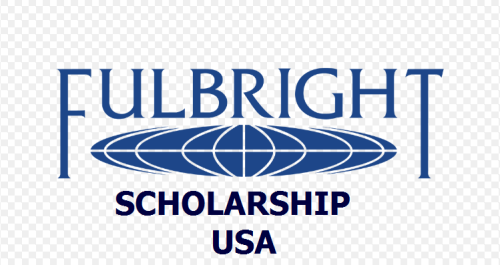
Overview
- The Fulbright Program provides orientation and enrichment opportunities to enhance the Fulbright Program experience in the United States.
- More than half of all incoming Fulbright Foreign Students participate in pre-academic training, either English language training or Fulbright Gateway Orientations.
- Enrichment Seminars are organized in 16 different cities across the United States. Grantees also participate in specialized workshops with themes, such as From Lab to Market, focusing on research and entrepreneurship, U.S. Disability Rights and Global Health Innovations.
- Program funding is provided by the U.S. Congress through an annual appropriation to the U.S. Department of State. Foreign governments, colleges and universities and private foundations also provide direct and indirect support.
History
In 1945, Senator J. William Fulbright introduced a bill in the United States Congress that called for the use of surplus war property to fund the “promotion of international good will through the exchange of students in the fields of education, culture and science.”
On August 1, 1946, President Harry S. Truman signed the bill into law, and Congress created the Fulbright Program.
From its inception, the Fulbright Program has fostered bilateral relationships in which citizens and governments of other countries work with the U.S. to set joint priorities and shape the program to meet shared needs. The world has been transformed in ensuing decades, but the fundamental principle of international partnership remains at the core of the Fulbright mission.
The J. William Fulbright Foreign Scholarship Board (FSB) was created by Congress to supervise the Fulbright Program. This 12-member Board, appointed by the President of the United States, works in cooperation with the Bureau of Educational and Cultural Affairs of the U.S. Department of State, the bi-national Fulbright Commissions and Foundations, and the Public Affairs Sections of U.S. Embassies abroad, to administer the Program. The FSB sets policies and procedures for administration of the Fulbright Program, has final authority for selection of all grantees, and supervises the conduct of the program both in the United States and abroad. Click here for a complete list of current FSB members.
The U.S. Department of State’s Bureau of Educational and Cultural Affairs (ECA) sponsors the Fulbright Program under policy guidelines established by the J. William Fulbright Foreign Scholarship Board (FSB) and in cooperation with bi-national Fulbright Commissions and the Public Affairs Sections of U.S. Embassies abroad.
As the administrative and executive arm of the Fulbright Program, ECA has fiscal responsibility for the preparation of an annual budget request to Congress and makes decisions on funding allocations to participating countries. Under policies established by the FSB, ECA also holds primary responsibility for the administration of the program, together with the assistance of cooperating non-profit organizations. The U.S. Student Program grant numbers are subject to the availability of federally-appropriated funds. The United States Department of State reserves the right to alter, without notice, participating countries, numbers of awards, terms of agreement, and allowances.
Within a U.S. Embassy abroad, exchange-program activities are the responsibility of the Public Affairs Section. In many countries, at least one of the Foreign Service Officers from this section is a member of the local bi-national Fulbright Commission and maintains liaison with the Commission on policy and program matters on behalf of ECA. In countries without a Fulbright Commission, the Public Affairs Officer or Cultural Affairs Officer administers the educational exchange programs.
Approximately 325,400 Fulbrighters, 122,800 from the United States and 202,600 from other countries, have participated in the Program since its inception more than sixty years ago. The Fulbright Program awards approximately 8,000 grants annually. Currently, the Fulbright Program operates in over 155 countries worldwide.
In 2001, ECA increased funding for the FLTA Program, allowing for additional Fulbright participants. Additional financial support has followed each year since to meet the growing need for instruction in less commonly taught languages. The FLTA Program became principally Fulbright in 2003, with the partnership of three times the number of Embassies and Commissions than in 2001. The program has now extended to more than 50 countries and supports the instruction of over 30 languages at host schools across the U.S.
Through inclusion in the Fulbright Program since 2001, more than 3,200 FLTA program participants have benefited from the opportunity to experience the U.S. while an estimated 80,000 U.S. students have increased their knowledge of foreign languages and cultures.
Fullbright official website Click here
Please, apply from U.S. Embassy in Myanmar Click here
